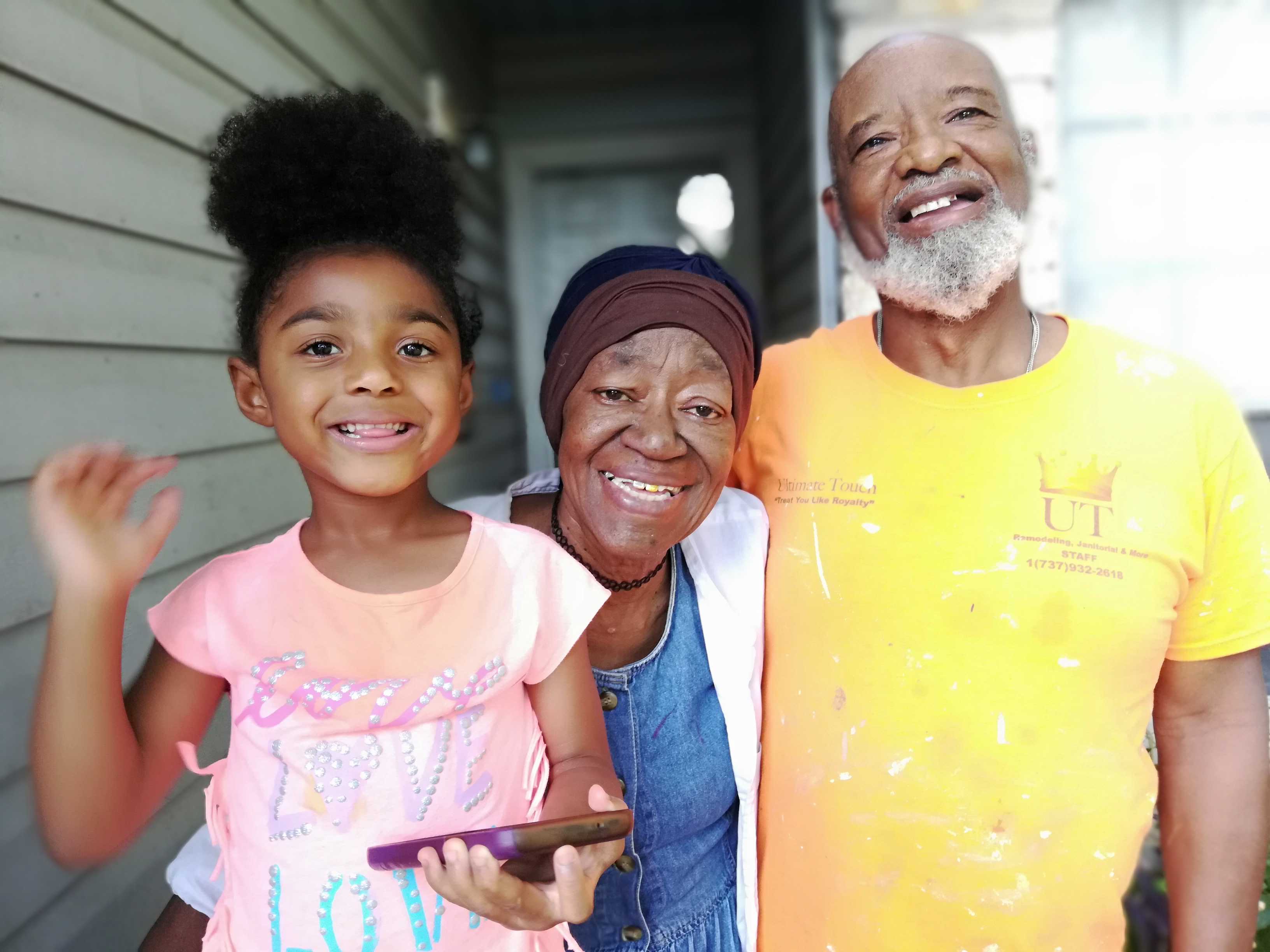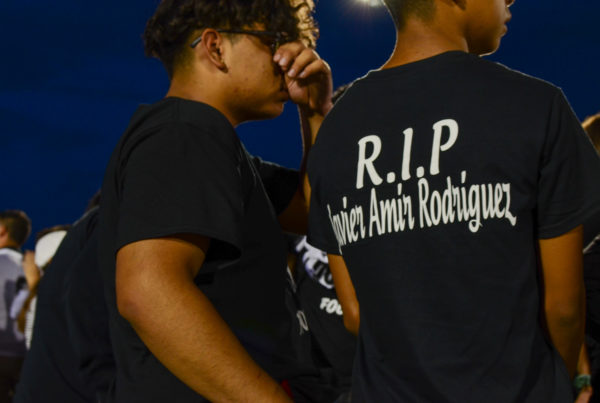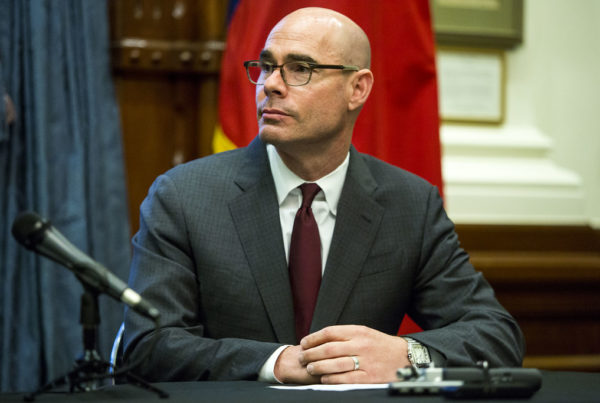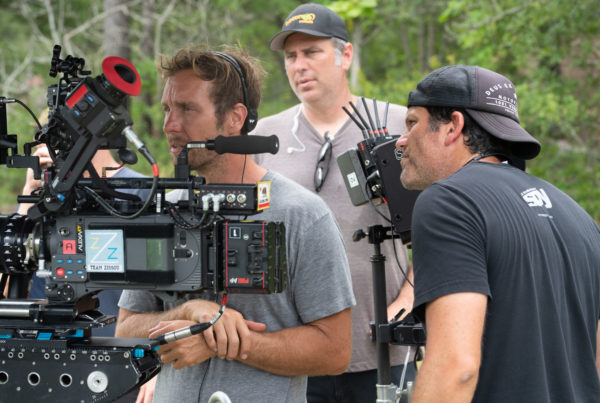A reverse mortgage allows older homeowners to borrow money against their home’s equity. It’s a legitimate financial option that provides cash, helping homeowners remain in their home as they age. The flip side is that thousands of homeowners have also lost the home they love after acquiring a reverse mortgage.
The home Willie and Earlene Williams have shared for almost four decades is modest. Built in the 1970s, the ranch-style home includes three bedrooms and two baths. It is the product of Earlene’s nursing career and Willie’s work as a heavy machine operator. Once you’re inside, you can see a wall full of family photos.
Now, they’re both in their 70s. Earlene looks frail and moves slowly because of her many health problems. But under this roof, Earlene and Willie raised 11 kids – some of them biological children, some adopted, some foster. Now it’s just them and their five-year-old great-granddaughter, Myrakle.
But they all may have to leave soon.
The Williams’ found out that their reverse mortgage lender foreclosed on their house, and that’s been devastating because Willie says – they-were-told that couldn’t happen
“’No, Mr. Williams, they cannot do that. The only way they can do that is if you die or both your wife and you are dead – but, no – not while you’re living,’” Willie Williams says he was told.
They are living. And yet, the house is no longer theirs, not legally.
“Where do we go if we were put out of our home? Where do we go?” Earlene says.
The Williams’ are still in the house because there were some irregularities with their foreclosure, and their attorney is taking their case to court, this Friday. More on that shortly.
Last month USA Today revealed that almost 100,000 reverse mortgages nationwide have failed since 2008.
Dr. Nathan Harness is director of financial planning at Texas A&M University. He says elderly African Americans like the Williams’ are the most affected
“Many have lived in or moved into urban areas where the value of their home has grown substantially – so, they’re cash poor but home rich,” Harness says.
That’s the Williams’ story
Property values in their Southeast Austin neighborhood have gone up – from around $67,000 in 1988 to $200,000 or more today. It’s a desirable location, only 15 minutes from downtown Austin – which is one of the most expensive cities in the country.
And Texas is full of cities like that. If you were to mark a map with red dots for the places where reverse mortgages have failed, as USA Today did, you’d see that Texas looks like it has chickenpox.
So reverse mortgages are considered predatory? Dr. Harness?
“I think it’d be a bit of a stretch to say – in and of themselves reverse mortgages are predatory products – [that they’re designed to be that way]. Now, with that said – is a reverse mortgage appropriate for everyone? And the answer is just simply, no.” Harness says.
Molly Rogers is the Williams’ attorney. She works for a nonprofit called Texas Rio Grande Legal Aid. She says after the financial crisis of 2008 hit, clients with reverse mortgage issues began trickling in, hoping she can help them stay in their homes. Now, instead of a trickle, she sees multiple clients a week.
The main issue is that people have borrowed against their equity without understanding the risks.
“[Reverse mortgages] – they’re a loan and so there are terms and conditions and so if you don’t meet every one of those terms and conditions you can be foreclosed even if you don’t owe a single payment.” Rogers say.
It’s easy to miss a term or a condition during a crisis. And that’s what happened to the Williams’. This past year has been full of family crisis.
“So, in November of 2018, Mr. Williams’ brother died.” Rogers says.
There were funeral expenses.
About that time, they owed $750 in property taxes. Last February, the lender moved toward foreclosure. At the same time, Mr. Williams’ sister died. Again, there were funeral expenses. Now, that property tax bill has ballooned to $9,000. Then in April, their 34-year-old son died of a massive heart attack.
“It just hurts so bad,” Earlene Williams says.
And that’s when they found out their house had been sold in a foreclosure sale for $129,000. The buyer said the Williams’ can rent the house for $1,300 a month. But that’s $100 more than their income, which comes from a Social Security disability check.
But attorney Molly Rogers thinks there may be a way to keep the Williams’ in their home.
“I do I think that the lender made a procedural mistake in the way they foreclosed,” Rogers says.
If a judge agrees with Rogers, there would still be a long way ahead for the Williams, because the home is not legally theirs – not anymore. Now, the new owner would need to agree to sell it back to them. And that would be a miracle.
But the Williams’ believe in miracles – after all – that’s what they named their great-granddaughter. They believe that to the new owner, the house is just an investment. Earlene says for her, it’s been a saving grace
“I walked in this house 30-something years ago and I told my husband, ‘this is my home – this is where we’re going to stay,’” she says.
Of course, it’s not up to her to decide.















